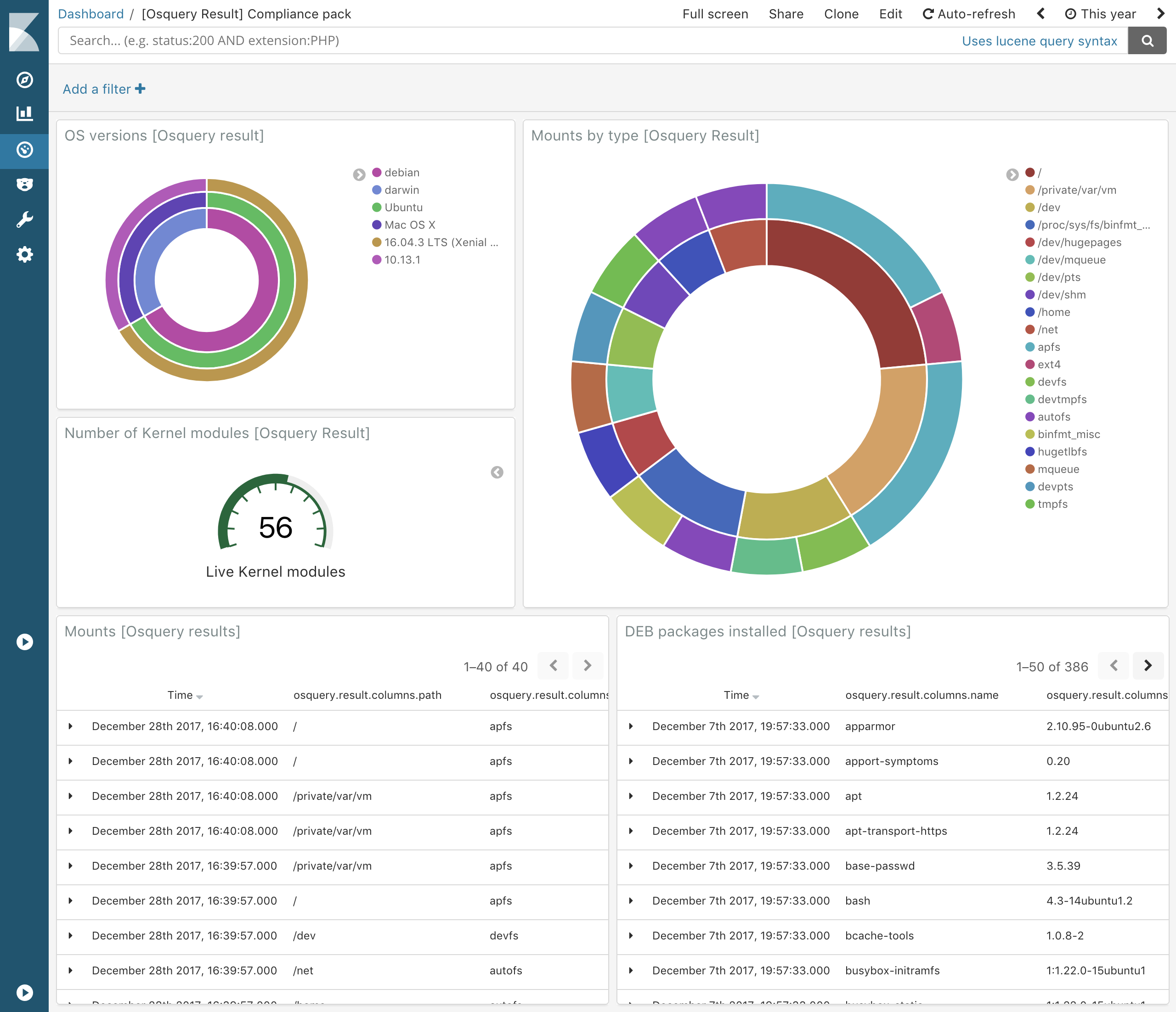Osquery module
Refer to the Elastic Integrations documentation.
Learn more
Elastic Agent is a single, unified way to add monitoring for logs, metrics, and other types of data to a host. It can also protect hosts from security threats, query data from operating systems, forward data from remote services or hardware, and more. Refer to the documentation for a detailed comparison of Beats and Elastic Agent.
The osquery module collects and decodes the result logs written by osqueryd in the JSON format. To set up osqueryd follow the osquery installation instructions for your operating system and configure the filesystem logging driver (the default). Make sure UTC timestamps are enabled.
When you run the module, it performs a few tasks under the hood:
- Sets the default paths to the log files (but don’t worry, you can override the defaults)
- Makes sure each multiline log event gets sent as a single event
- Uses an Elasticsearch ingest pipeline to parse and process the log lines, shaping the data into a structure suitable for visualizing in Kibana
- Deploys dashboards for visualizing the log data
Read the quick start to learn how to configure and run modules.
The osquery module was tested with logs from osquery version 2.10.2. Since the results are written in the JSON format, it is likely that this module works with any version of osquery.
This module is available on Linux, macOS, and Windows.
You can further refine the behavior of the osquery module by specifying variable settings in the modules.d/osquery.yml file, or overriding settings at the command line.
You must enable at least one fileset in the module. Filesets are disabled by default.
The following example shows how to set paths in the modules.d/osquery.yml file to override the default paths for the syslog and authorization logs:
- module: osquery
result:
enabled: true
var.paths: ["/path/to/osqueryd.results.log*"]
To specify the same settings at the command line, you use:
-M "osquery.result.var.paths=[/path/to/osqueryd.results.log*]"
Each fileset has separate variable settings for configuring the behavior of the module. If you don’t specify variable settings, the osquery module uses the defaults.
For advanced use cases, you can also override input settings. See Override input settings.
When you specify a setting at the command line, remember to prefix the setting with the module name, for example, osquery.result.var.paths instead of result.var.paths.
var.paths- An array of glob-based paths that specify where to look for the log files. All patterns supported by Go Glob are also supported here. For example, you can use wildcards to fetch all files from a predefined level of subdirectories:
/path/to/log/*/*.log. This fetches all.logfiles from the subfolders of/path/to/log. It does not fetch log files from the/path/to/logfolder itself. If this setting is left empty, Filebeat will choose log paths based on your operating system. var.use_namespace- If true, all fields exported by this module are prefixed with
osquery.result. Set to false to copy the fields in the root of the document. If enabled, this setting also disables the renaming of some fields (e.g.hostIdentifiertohost_identifier). Note that if you set this to false, the sample dashboards coming with this module won’t work correctly. The default is true.
This module comes with a sample dashboard for visualizing the data collected by the "compliance" pack. To collect this data, enable the it-compliance pack in the osquery configuration file.

For a description of each field in the module, see the exported fields section.